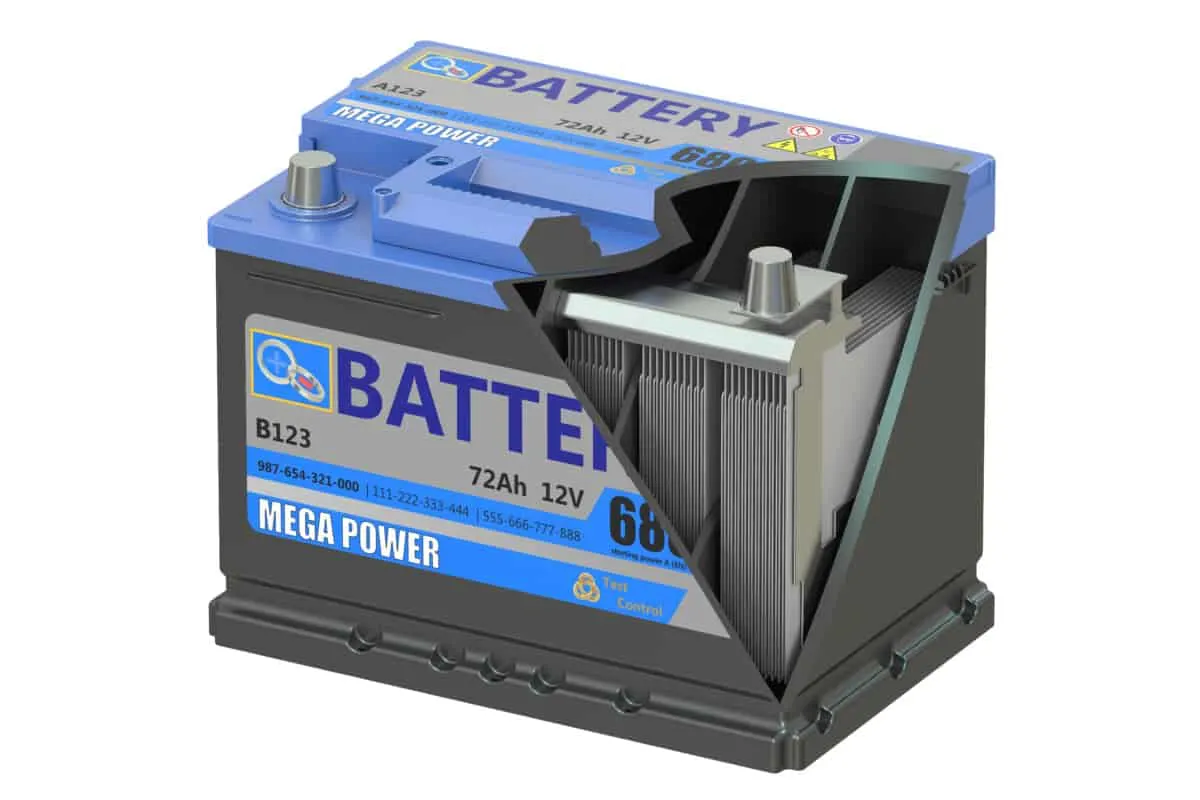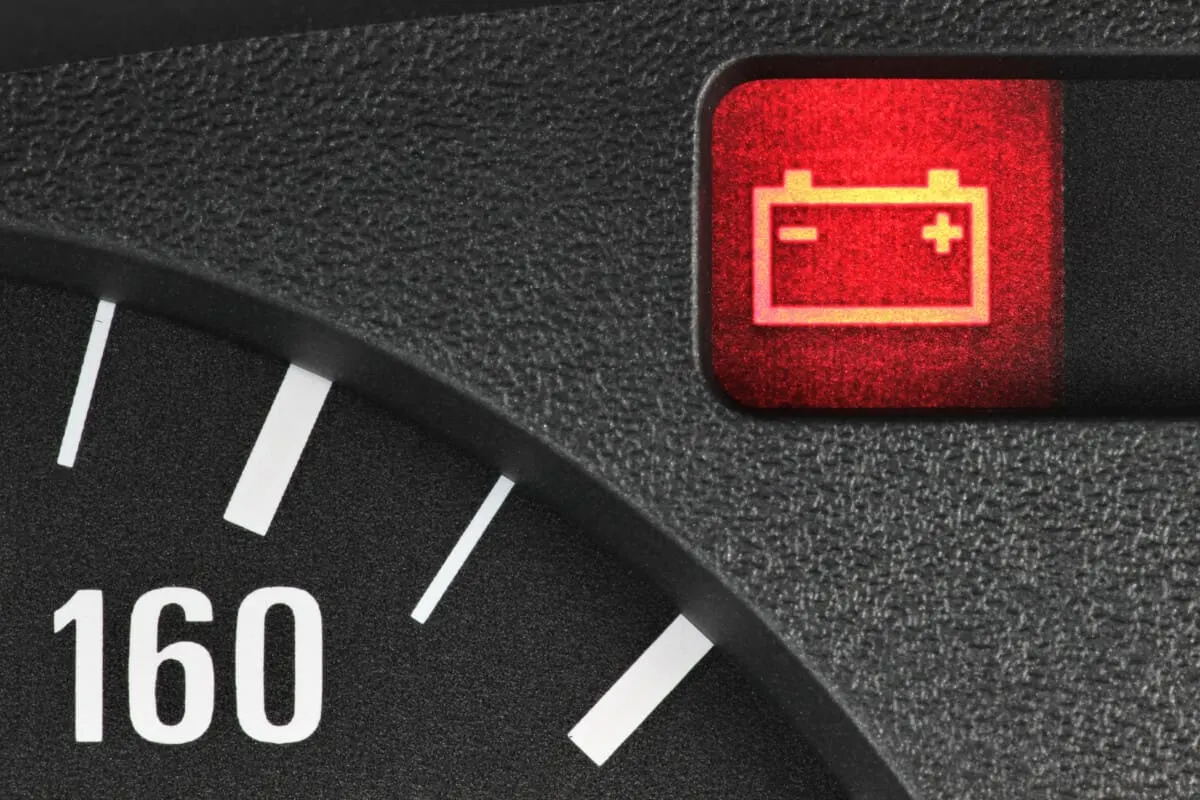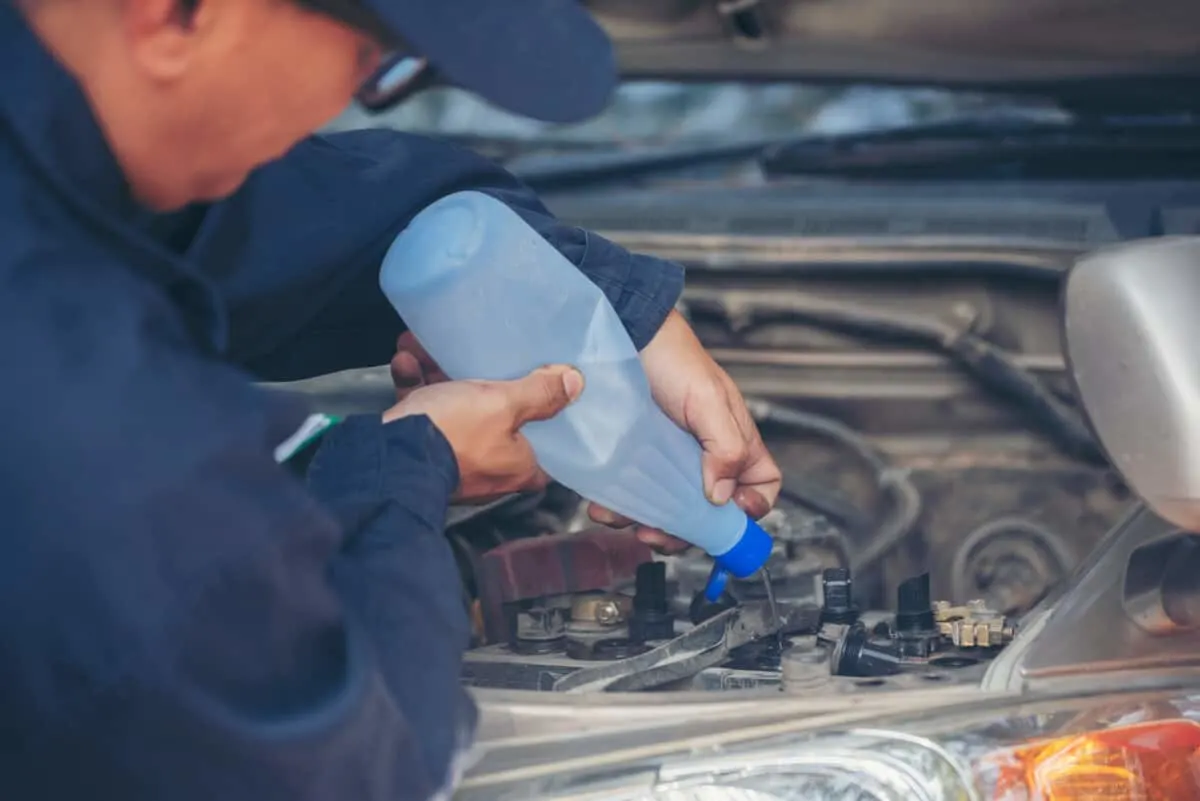Maybe you got heavy rain last night, maybe you are needing to jump-start your car in the rain, or maybe you tried driving on the beach and ended up partly submerged. Whatever the reason, it’s valid to question whether or not your car battery can get wet.
A car battery can get wet as the case for the battery is made of polypropylene resin, which keeps moisture out. But if you take your car battery out and leave it out in the rain, the terminals and lid where you would normally add water are more susceptible to water damage.
So although your battery can withstand some water exposure, it certainly should not be totally submerged in water. Read below to learn more about the effects of water on a car battery.
Is It Okay For My Car Battery To Get Wet?
Although the answer is generally yes, that is not always the case. There are other things to consider but you should know that it is generally quite safe to jump-start your car in the rain.
This is because pure water is not a conductor of electricity but metal is! The metal leads you use to connect to the terminals are just as safe to use on a rainy day as they are on a sunny day.
You can also safely install a car battery while it’s raining, as well as charge your car battery. But your car battery charger might not be waterproof, so keeping that covered might be important.
The car battery is the heart of your car and the main piece of equipment that starts it. Keeping it safe and in optimal condition is imperative for a well-functioning car. The worst thing that water can do to your car battery is to corrode and rust the terminals. But even then, it will not short the battery.
The Anatomy Of Your Car Battery

Many people do not know or understand how their car battery works. And more often than not, they don’t even know where it is when they lift the hood. This is why some people worry about getting their battery wet.
Some engine parts are more susceptible to water damage than others, so it’s important to know what you’re looking for!
In this section, I will describe each main component and the basics of how it all works.
The battery is the rectangular box found towards the front. The first thing you should know about is the terminals. These are the two knobs on the top of the box that connects the battery to the vehicle’s electrical system.
This is where you would connect the clamps if you wanted to jump-start your car. They are made of lead to avoid corrosion and rust.
Inside the box is the battery acid which is composed of sulfuric acid and water. There is a negative battery plate and a positive battery plate. Separating the two is a battery separator, which provides a good flow of electric current.
The battery case holds everything and extends battery life. This is what protects the battery from water and makes it water-resistant. The last thing you need to know is the battery lid which is sealed to the case and also made of polypropylene resin.
When you put your key into the ignition and twist it, the car battery then receives a signal to convert chemical energy to electrical energy, which will then transfer voltage to the starter and get the engine going. The battery then keeps the current stable.
What Happens When My Car Battery Gets Wet?
For the most part, nothing will happen if your battery gets wet. Your car battery is designed to keep water out, and so it should not allow anything to get in.
There are two types of car batteries. There is a sealed car battery and a vented car battery. Sealed car batteries will not let anything in. A vented car battery will let things out but because of a rubber membrane, nothing should be able to get in all the way. That is unless you open the top.
A vented car battery could potentially be more susceptible to water leaking in, but even then that is rare. Overall, it’s not likely that water will do anything to your battery. You really don’t have much to worry about when you’re out and about in the rain or driving through puddles.
Total Battery Submersion
If the sealant works well and prevents any water from getting in, then the battery will continue to work just fine.
But if water happens to leak in when it was submerged, that means the battery acid will be diluted.
You can either try to replace the electrolyte (battery acid) or you can just replace the battery entirely if you don’t want to mess with it.
Why Else Might The Battery Be Dead?

Your battery might be dead for other reasons that have nothing to do with heavy rain or being submerged in water. The most common reasons are leaving on headlights and interior lights while the car is stationary.
Also, the battery is charged by the car when it runs, so if you haven’t used your car in a while, that might cause the battery to die. If this is the case, then most likely your car just needs a jump start.
Your battery might need replacing if the check engine light is on, the engine is slow to start, there is a bad smell that indicates heavy corrosion, or the battery is old. On average, a battery lasts up to four years.
Overall, water is not a death sentence for your car battery. The casing and lid were designed to specifically keep out water, and the terminals were made of lead to prevent corrosion as much as possible. Your car battery is highly durable and can survive a lot of water exposure.
Make sure that if you take out the battery, you keep it in a dry place, and that you clean the terminals often to prevent any corrosion that does happen. Don’t worry about taking care of your car battery in the rain, because this will not affect it.
